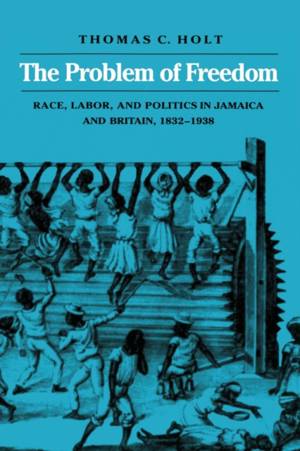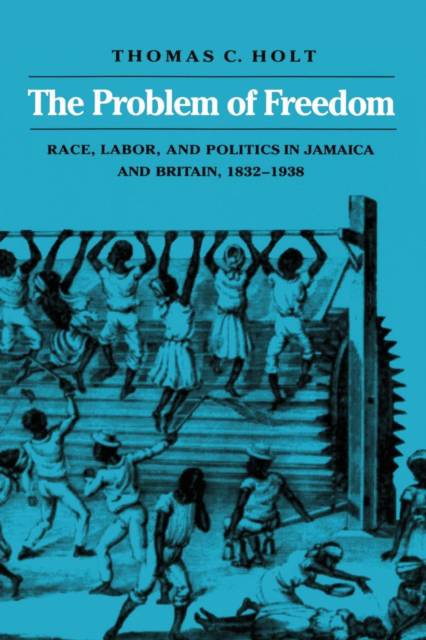
- Retrait gratuit dans votre magasin Club
- 7.000.000 titres dans notre catalogue
- Payer en toute sécurité
- Toujours un magasin près de chez vous
- Retrait gratuit dans votre magasin Club
- 7.000.0000 titres dans notre catalogue
- Payer en toute sécurité
- Toujours un magasin près de chez vous
Description
The Jamaican slave revolt of 1831-32 precipitated the abolition of slavery throughout the British colonial empire. A century later, the labor rebellion of 1938 marked the beginning of that empire's end. Each event embraced a particular form of emancipation: at issue in the first revolt was the freedom of the individual slave; at issue in the second was the freedom of the society itself. The century that separated these watersheds in British colonial history was one of extraordinary transformations in British ideology, in economic and social policy, and in the lives of Jamaican freed people and tehir descendants. In The Problem of Freedom, Thomas C. Holt offers an intriguing analysis of this period, exploring the meaning and reality of freedom in the context of slave emancipation in Jamaica--the largest West indian colony of the nineteenth century's major world power.
Spécifications
Parties prenantes
- Auteur(s) :
- Editeur:
Contenu
- Nombre de pages :
- 552
- Langue:
- Anglais
- Collection :
Caractéristiques
- EAN:
- 9780801842917
- Date de parution :
- 01-11-91
- Format:
- Livre broché
- Format numérique:
- Trade paperback (VS)
- Dimensions :
- 152 mm x 228 mm
- Poids :
- 707 g

Les avis
Nous publions uniquement les avis qui respectent les conditions requises. Consultez nos conditions pour les avis.






